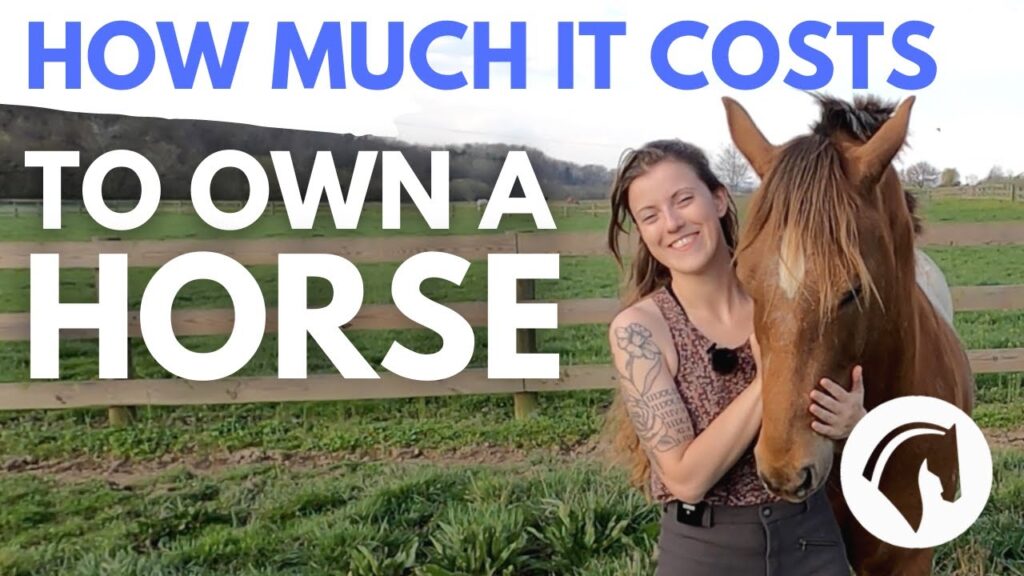The Costs of Owning a Horse: A Comprehensive Guide
Introduction
Owning a horse is a dream for many animal lovers and equestrians. However, the reality of horse ownership involves significant financial commitments that extend far beyond the initial purchase price. This article will explore the various costs associated with owning a horse, including initial expenses, ongoing maintenance, and unexpected costs. We will provide detailed insights into each category of expenses, practical tips for budgeting, and a comprehensive FAQ section to address common questions about horse ownership.
Table of Key Information
| Detail | Information |
|---|---|
| Initial Purchase Cost | $500 to $10,000+ depending on breed and training |
| Monthly Maintenance Cost | $300 to $3,000+ depending on boarding and care |
| Annual Costs | $8,600 to $26,000+ for care, food, and veterinary services |
| Common Expenses | Feed, boarding, veterinary care, farrier services, grooming |
| Lifespan of a Horse | 25 to 30 years on average |
| Budgeting Recommendation | Plan for both expected and unexpected costs |
| Resources | Wikipedia page on Horses |
Understanding the Costs of Horse Ownership
1. Initial Purchase Costs
The first step in horse ownership is the purchase of the horse itself. The price of a horse can vary widely based on several factors, including breed, age, training, and pedigree.
Average Costs of Horses
- Recreational Horses: For a horse intended for pleasure riding or basic training, prices typically range from $1,500 to $5,000.
- Show Horses: Horses bred for competition or showing can range from $5,000 to $15,000, with elite horses potentially costing $15,000 to $100,000 or more.
- Rescue Horses: Adopting a horse from a rescue organization can be more affordable, often ranging from $500 to $2,000, but may require additional investment in training and care.
2. Setup Costs
In addition to the purchase price, new horse owners should budget for setup costs, which include:
- Tack and Equipment: Saddles, bridles, grooming supplies, and riding gear can cost anywhere from $500 to $2,000.
- Initial Veterinary Exam: A pre-purchase veterinary examination is recommended and can cost $200 to $500.
- Stabling: If you don’t have your own property, boarding can range from $300 to $3,000 per month, depending on the services provided.
3. Monthly Maintenance Costs
Once you own a horse, the ongoing costs of care can add up quickly. Here’s a breakdown of typical monthly expenses:
Feed and Nutrition
- Hay: Horses typically consume 1.5% of their body weight in hay daily. The cost can vary based on the type of hay and local availability, averaging around $200 to $500 per month.
- Grain: Depending on the horse’s activity level, grain costs can range from $50 to $200 per month.
Veterinary Care
Routine veterinary care is essential for maintaining your horse’s health. This includes:
- Annual Check-ups: Expect to pay $200 to $500 for routine veterinary visits, vaccinations, and health checks.
- Emergency Care: Be prepared for unexpected veterinary expenses, which can range from $500 to $5,000 for serious issues.
Farrier Services
Regular hoof care is critical for a horse’s well-being. Farrier costs can range from $30 to $150 every 6-8 weeks, depending on whether your horse requires basic trimming or shoeing.
Insurance
Horse insurance can help mitigate some financial risks associated with ownership. Monthly premiums can range from $20 to $100, depending on coverage levels and the horse’s value.
4. Additional Costs
In addition to the primary expenses outlined above, consider the following potential costs:
- Grooming Supplies: Regular grooming is essential for your horse’s health and can cost around $50 to $100 for brushes, shampoos, and other supplies.
- Bedding: If you keep your horse in a stable, bedding costs can range from $50 to $150 per month.
- Training: If you require professional training for your horse, costs can vary widely, from $300 to $1,000 per month, depending on the trainer and the horse’s needs.
5. Long-term Costs
Horses typically live for 25 to 30 years, meaning that the long-term costs of ownership can be substantial. Over a horse’s lifetime, owners may spend anywhere from $100,000 to $300,000 or more, depending on the horse’s needs and the owner’s choices.
Budgeting for Horse Ownership
1. Creating a Budget
When considering horse ownership, it is crucial to create a detailed budget that accounts for both expected and unexpected costs. Here’s a simple framework:
- Initial Costs: Include the purchase price, setup costs, and initial veterinary expenses.
- Monthly Costs: Calculate ongoing expenses such as feed, boarding, veterinary care, and farrier services.
- Emergency Fund: Set aside funds for unexpected veterinary bills or emergencies.
2. Tracking Expenses
Keep detailed records of all expenses related to your horse. This will help you stay on budget and identify areas where you can cut costs if necessary.
3. Seeking Financial Assistance
If the costs of horse ownership seem overwhelming, consider exploring financial assistance options such as:
- Grants and Scholarships: Some organizations offer financial support for equestrian programs or youth riders.
- Sponsorships: If you compete, seek sponsorships from local businesses or equestrian brands.
FAQ Section
Q1: What is the average cost of owning a horse?
A1: The average annual cost of owning a horse can range from $8,600 to $26,000, depending on various factors such as location, care, and the horse’s needs.
Q2: How much does it cost to buy a horse?
A2: The cost of purchasing a horse can range from $500 to $10,000 or more, depending on the horse’s breed, age, training, and pedigree.
Q3: What are the ongoing costs of horse ownership?
A3: Ongoing costs include feed, veterinary care, farrier services, grooming supplies, and boarding, which can add up to several thousand dollars annually.
Q4: How often should I schedule veterinary care for my horse?
A4: It is recommended to have an annual veterinary check-up, but additional visits may be necessary for vaccinations, dental care, and emergencies.
Q5: Can I keep a horse on my property?
A5: Yes, many horse owners keep their horses on their own property, but this requires adequate space, shelter, and resources for proper care.
Q6: What should I consider before buying a horse?
A6: Consider your budget, available time for care, experience level, and the type of horse that best suits your needs and lifestyle.
Q7: How long do horses typically live?
A7: Horses can live for 25 to 30 years, so it’s important to consider the long-term commitment involved in horse ownership.
Q8: Is horse insurance necessary?
A8: While not mandatory, horse insurance can help protect your investment and cover unexpected veterinary expenses.
Conclusion
Owning a horse is a rewarding experience that comes with significant financial responsibilities. By understanding the various costs associated with horse ownership and creating a detailed budget, prospective horse owners can make informed decisions and ensure they are prepared for the commitment involved. Whether you are a first-time horse owner or an experienced equestrian, being aware of the costs can help you enjoy a fulfilling relationship with your equine companion.For more detailed information about horses and equine care, you can refer to the Wikipedia page on Horses.



